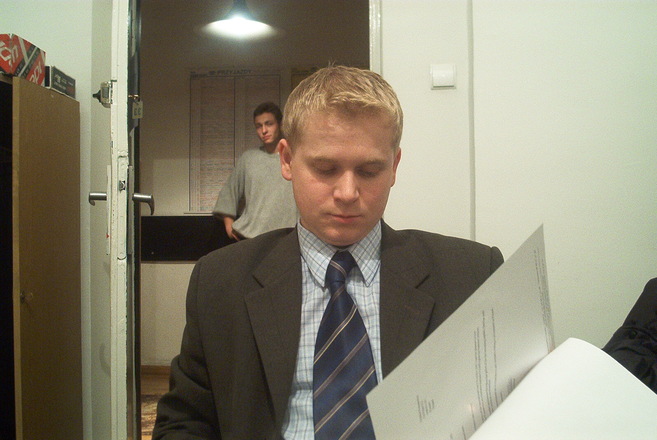“[The EPO] can’t distinguish between hardware and software so the patents get issued anyway."
--Marshall Phelps, Microsoft

Summary: The biggest parasites in the software domain (not patent trolls but lawyers who help instantiate weapons for patent aggressors large and small) are looking for new and 'creative' ways to bypass the rules
THE USPTO and SCOTUS have both come to terms with the fact that software patents aren't a defensible feeding frenzy. The EPO will need to realise this too, but that's a story for another day. Is started with Bilski versus David Kappos (a software patents booster) and now we have Alice, which has vast implications for every company which still believes in software patenting as a business strategy (Trading Technologies for instance).
Jacek Wnuk has
this new article in lawyers' media. He explains the history of software patents and then offers "strategies" for getting them. Patent lawyers generally like giving tips to other patent lawyers on how to cheat the system and patent software even when there's precedence against them. Here is Bradley Arant Boult Cummings LLP
doing it. Watch them complain about the status quo: "One of the main functions of law should be to provide relatively predictable rules that allow people to order their affairs with as much certainty as possible. The development of patent law in the field of software, however, has not provided the relative predictability that minimizes unnecessary patent prosecution and litigation costs. The courts have not given much guidance on what constitutes an "abstract idea"2 but have made "abstract idea" one of the key criteria for subject matter eligibility under 35 U.S.C. ۤ 101, and this situation has produced real-world detriments. Innovators waste money and time either seeking patents they should not seek or defending themselves from patents that should be invalid. This article proposes a new rule for software patent eligibility that could help b1ing more clarity to the field."
What they mean to say is not "more clarity" but more business for themselves. It's about money. Some companies ceased pursuing patents on software, so patent lawyers already feel the pinch.
Looking more closely at Wnuk's long article, here is how he framed the situation: "The Supreme Court finally returned its attention to the “abstract idea” question by affirming its importance in a narrow 2010 ruling rejecting a patent application directed to hedging energy investment risks, Bilski v. Kappos, 561 U.S. 593 (2010). In 2014, the Supreme Court modified the “abstract idea” subject matter eligibility rule by asserting that an abstract idea could, in fact, be patentable, so long as the patent application in question claims “significantly more” than the abstract idea, which the Court decided was not present in several patent applications directed to formulation and trading of risk management contracts. Alice Corp. v. CLS Bank International, 573 U.S. ___ (2014)."
Fast-forwarding to 2015, Wnuk writes: "For patent practitioners, the Supreme Court’s Alice decision produced more questions than answers, as the Court expressly declined to define “something more” and stated that it “need not labor to delimit the precise contours of the ‘abstract ideas’ category.”
"The USPTO stepped in by publishing two sets of “abstract idea” examples based alternately on caselaw and on hypothetical claims. The first set of examples was published in January 27, 2015 (“Abstract Idea Examples”, Examples 1-5) and the second on July 30, 2015 (“July 2015 PTO Update Appendix 1: Examples”, Examples 21-27).
"The table below identifies and categorizes the examples provided by the USPTO in January and July of 2015 based on their patentability or unpatentability, and based on the reasoning provided therefore. Some examples are categorized under multiple columns where the USPTO provided multiple claims with different conclusions."
We wish to highlight the fact that patent lawyers are big enemies here. They are trying to find clever new ways to perpetuate software patentability, defying a high court's decision and also ignoring what software developers actually want.
Patent lawyers are -- bluntly speaking -- parasites.
⬆
“Other than Bill Gates, I don’t know of any high tech CEO that sits down to review the company’s IP portfolio"
--Marshall Phelps, Microsoft

